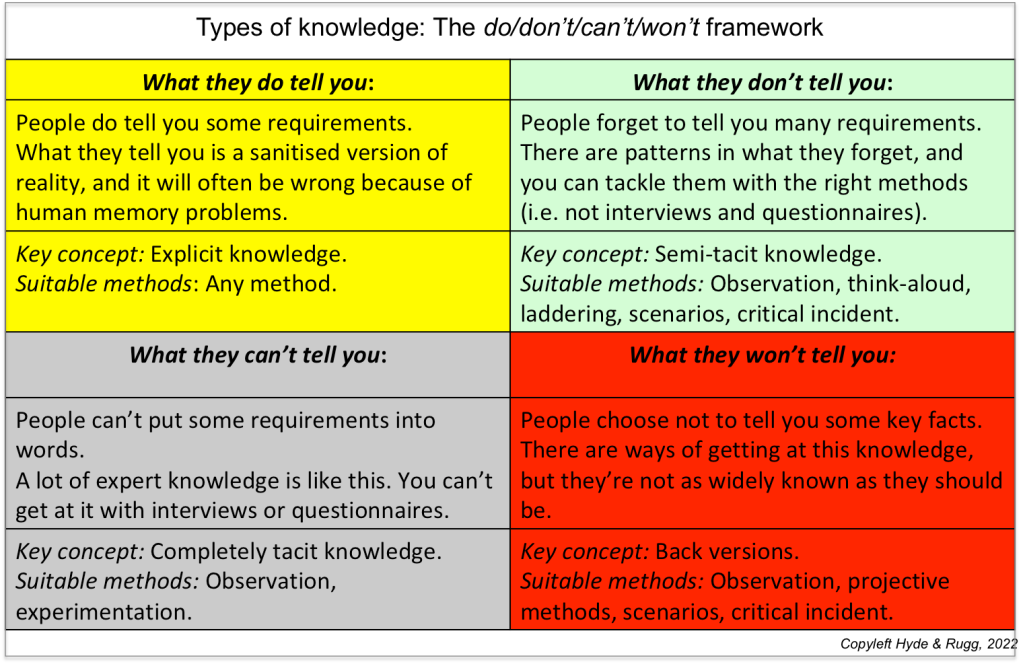By Gordon Rugg and Sue Gerrard
Tacit knowledge is knowledge which, for whatever reason, is not explicitly stated. The concept of tacit knowledge is widely used, and has been applied to several very different types of knowledge, leading to potential confusion.
In this article, we describe various forms of knowledge that may be described as tacit in the broadest sense; we then discuss the underlying mechanisms involved, and the implications for handling knowledge. The approach we use derives from Gordon’s work with Neil Maiden on software requirements (Maiden & Rugg, 1996; reference at the end of this article).
In brief, the core issue can be summed up as whether people do, don’t, can’t or won’t state the knowledge. If they do state it, it is explicit knowledge, and can be accessed via any method. If people don’t, can’t or won’t state the knowledge, then it is some form of semi-tacit or strictly tacit knowledge, which can only be accessed via a limited set of methods such as observation, laddering or think-aloud. Because of the neurophysiological issues involved, interviews, questionnaires and focus groups are usually unable to access semi-tacit and tacit knowledge.
The image below shows the key issues in a nutshell; the rest of this article unpacks the issues and their implications. There are links at the end of the article to other articles on the methods mentioned in the table. The image below is copyleft; you’re welcome to use it for any non-commercial purpose, including lectures, as long as you retain the coplyleft statement as part of the image.






